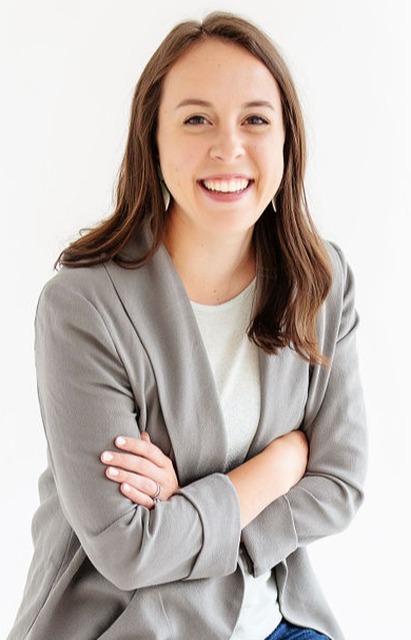Sarah Line, MA, LPCC
Sarah has a presence that will set you at ease and lift you up with support. She’s got a keen eye for the relational context of each person’s struggles and she’s ready to be your guide through not only personal, but also interpersonal, growth and healing.

CONTACT
- Sarah Line, MA, LPCC
- Counselor
- s.line@thrivepointe.com
- 833-914-4688 (New Clients)
- 513-970-4640 (Current Clients)
SERVICES
SPECIALTIES
- Academic and Performance Anxiety
- Anger
- Anxiety
- Assertiveness and Confidence
- Assessing Strengths
- Attachment Insecurity
- Bipolar Disorder
- Christian-Focused Counseling
- Communication Skills
- Conflict Management
- Depression
- Distress Tolerance
- Grief and Loss
- Interpersonal skills
- Life Balance
- Life Transitions and Decision Making
- Marital conflict
- Mindfulness
- Perfectionism
- Postpartum Anxiety and Depression
- Relationships
- Stress
- Trauma
EDUCATION & EXPERIENCE
- MA, Clinical Mental Health Counseling
- BS, Psychology
- Cognitive Behavioral Therapy (CBT)
- Dialectical Behavior Therapy (DBT)
- Emotionally Focused Therapy (EFT)
- Mindfulness
- Positive Psychology
- PREPARE/ENRICH Facilitator
RATES
- 180 (First Visit)
- 145 (45-min Session)
How I Help Clients Thrive
My therapeutic approach is based on the belief that relationships heal. As your therapist, you can trust that I will be firmly on your team. Life often leaves us in uncertain, shaky places. In those moments, it’s good to have relationships, and a therapist, that you can lean on.
Attending therapy does not mean that something is wrong with you or that you’re weak. It simply entails admitting that you are ready for a change. And stepping out into the uncertainty of change is one of the bravest things we can do. What is amazing is that we now know that our brains are incredibly capable of change — scientists call this neuroplasticity. To me, that word is hopeful. It tells me that nobody is too far gone to find healing. As a therapist, while I humbly accept that I cannot make that change happen on your behalf; I look forward to supporting you while you make the courageous decision to walk down a new path.
In my practice I adopt an integrative process, utilizing my knowledge of mindfulness, Cognitive Behavioral Therapy, Dialectical Behavior Therapy, and Emotionally Focused Therapy to best address the distinct journey of each client. Through this collaborative approach, my clients can expect a personal, transformative experience that leads to a greater understanding of themselves and their relationships — and the development of practical tools to navigate life’s challenges and support their emotional well-being.
What I Do for Self-Care
My self-care is best practiced in my weekly rhythms; the habits that bring me life — but not guilt or shame if I miss them. These include spending morning time on my front porch, training for a half-marathon, being with friends or my church community group, and always having a just-for-fun book to read. When I need a little extra self-care, you might find me treating myself to a Chick-fil-A breakfast before work or planning a fun trip to take with my husband.
Why I Became a Counselor
The idea and longing for this career began in middle school. A teacher I was close to saw something in me that led her to suggest I investigate Psychology, a word I didn’t even know at the time. I resonated with the desire to understand other people and their emotions. I also recognized that I deeply valued relationships and wanted to be able to help others foster healthy relationships in their lives. I first decided I wanted to be a therapist in 8th grade, and I continue to feel so thankful for the teacher that guided me onto this path — it has been a great one.
Ready to Schedule?
You can view Sarah’s upcoming availability and schedule your first visit, free consultation, or ongoing therapy appointments now.
If you have trouble finding an appointment, please contact our Care Coordinator for support, 833-914-4688.
